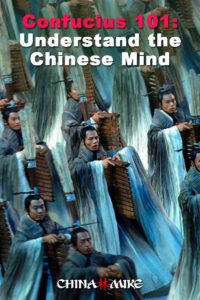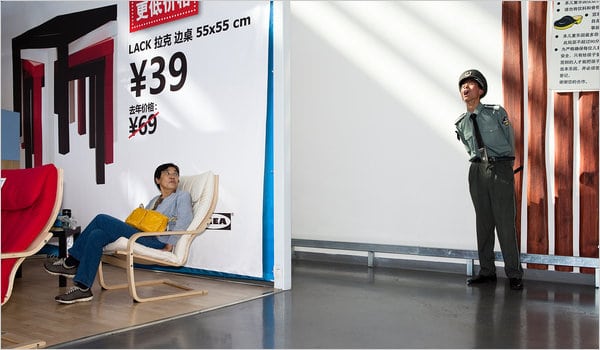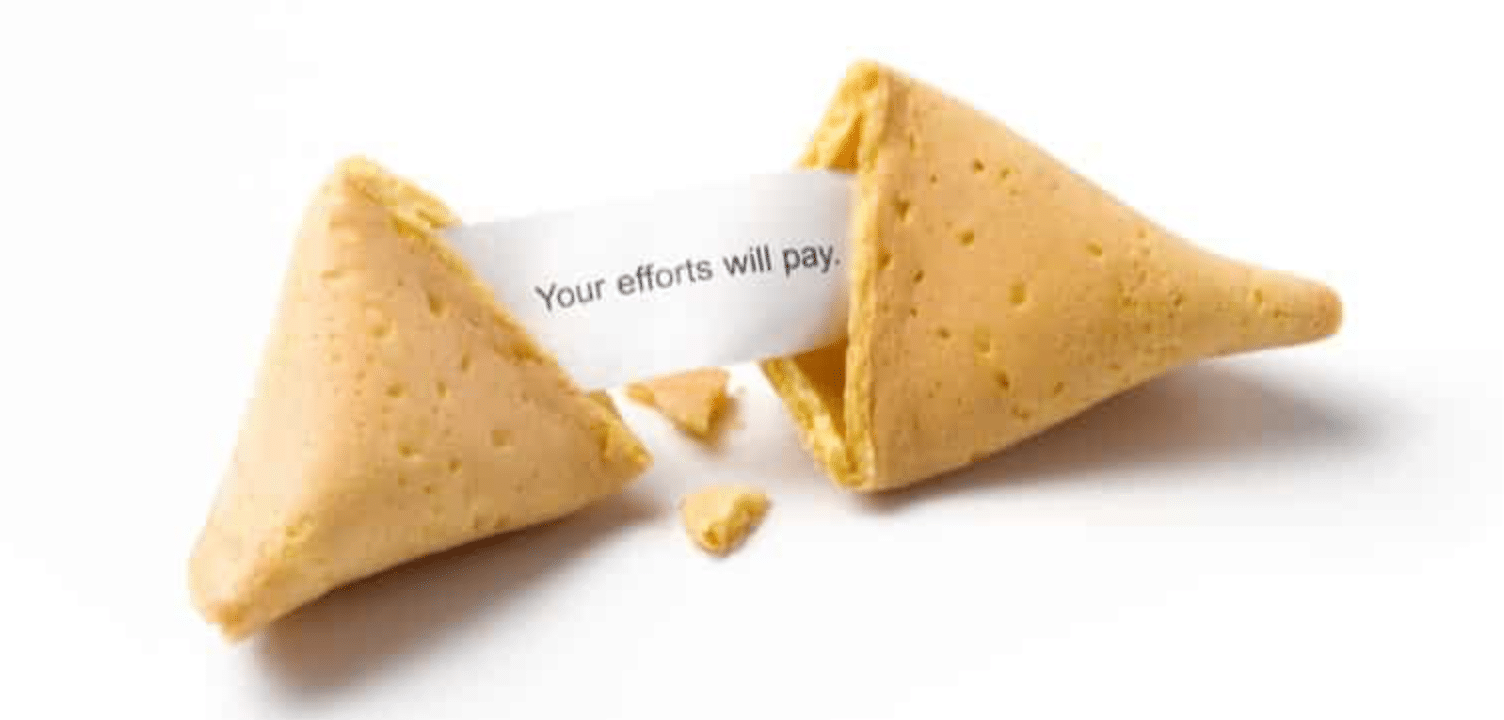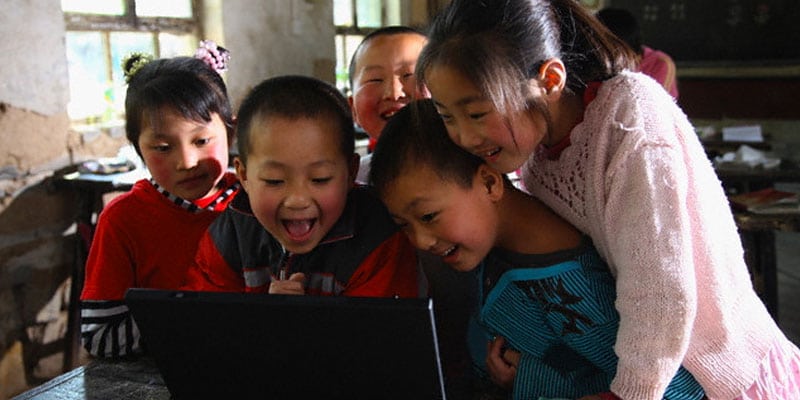Confucius has arguably had the greatest influence on the Chinese culture and thinking we know today. For this reason, it’s important to understand who Confucius is and what kind of role he played in China’s history and development.
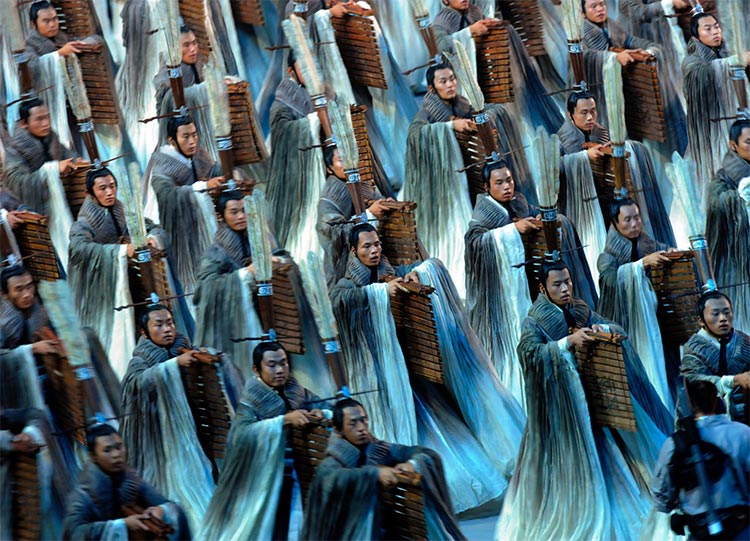
You may remember that the 2008 Olympic opening ceremony kicked off with a quote from Confucius—an adage that it’s a great pleasure to have friends come to visit from afar.
Later we also saw three thousand performers -–dressed as Confucius’ disciples—parade through the Bird’s Nest Stadium.
Clearly, the Chinese people like this guy.
To understand the Chinese mind, you need to start with Confucius (552-479BC). Arguably the most influential person in Chinese history, Confucius and his teachings continue to exert a deep influence on society even in modern China today.
In this article, we’re going to cover:
- Who is Confucius?
- How did Confucius Influence Chinese Thinking?
- Confucius within Chinese History
- Confucius and Modern China
Who Was Confucius
Confucius was a Chinese philosopher who lived during the Spring and Autumn period in China’s history (~500BC). He is credited with authoring numerous classic texts covering all sorts of societal topics that have come to be known as “Confucianism”.
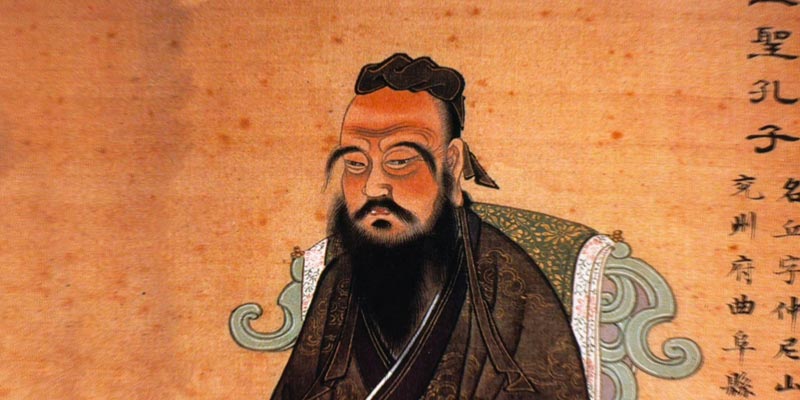
Confucius is best known for his thoughts on the following question: “What’s the best way to order society and government?”
He championed a kind of moral guide and prescription for good government— one that values hierarchy, group orientation, and respect for age and tradition.
This system based on a practical kind of morality (you won’t find any abstract principles of “good” and “evil”) formed the building blocks for Confucianism.
What is Confucianism?
First, let’s start with what Confucianism is not.
Though many temples were built in his honor, Confucianism not a religion in the Western sense. There’s no god. Nor are there priests, shrines or churches. You won’t find people running around calling themselves a “Confucianist.”
In fact, he was mostly silent on the afterlife (though over the centuries his teachings were melded with Daoist and Buddhist tenets and rituals). His attitude on the subject is perhaps best summed up in his statement:
If you are not able to serve men, how can you worship the gods?
Confucius
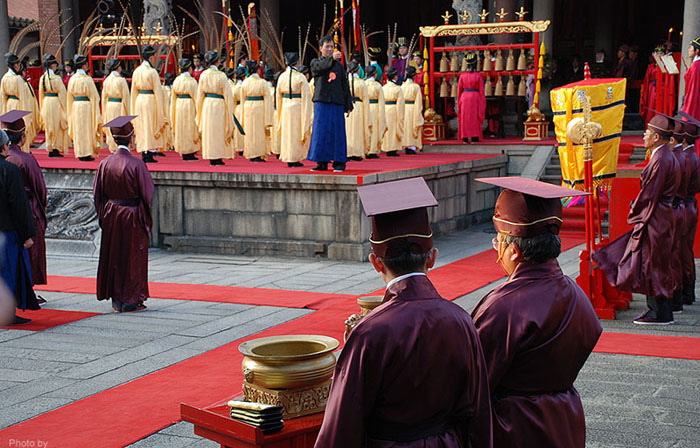
In a nutshell, Confucianism is a complex system of social and political ethics based on filial piety, kinship, loyalty and righteousness.
The teachings cover a wide range—from how a “true gentleman” should behave in his daily life (down to how he eats with proper decorum) to how a ruler should govern (with a benevolent concern for the well-being of his subjects).
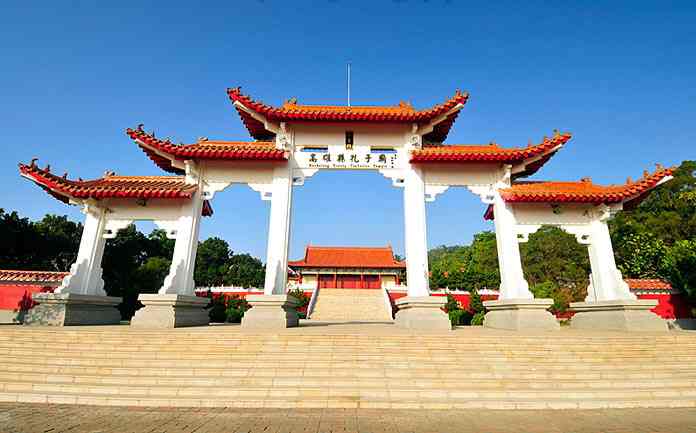
How Confucius Influences Chinese Thinking
As stated earlier, these writings by Confucius have heavily influenced Chinese society and thinking.
But what does that mean, exactly?
How did the teachings and writings of Confucius directly affect present day China?
Confucius’ Views of Status & Hierarchy
Confucius was mainly interested in how to bring about societal order and harmony.
He believed that mankind would be in harmony with the universe if everyone understood their rank in society and were taught the proper behaviors of their rank. Similarly, he believed that the social order was threatened whenever people failed to act according to their prescribed roles.
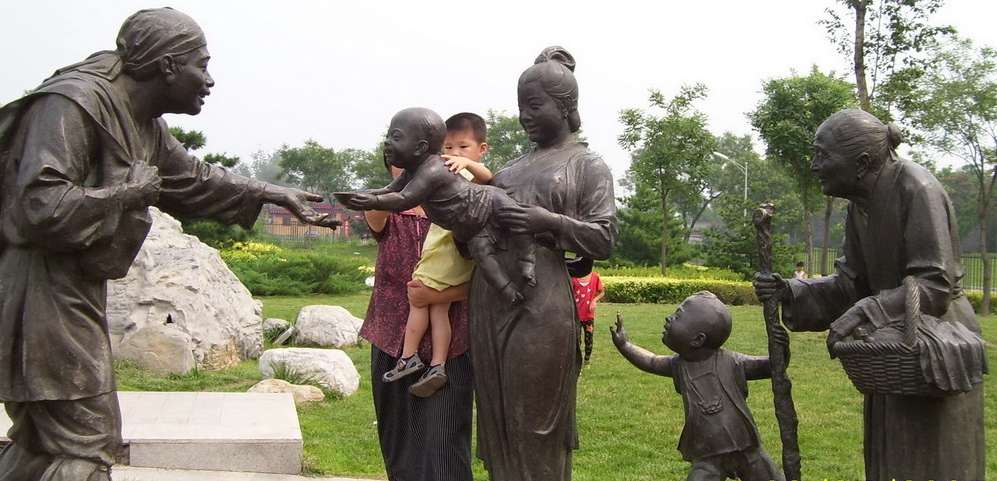
Confucius devised a system of interdependent relationships— a structure in which the lower level gives obedience to the higher (extending from the family level to the national).
As a result, Chinese culture tends gives a considerable amount of reverence for authority and age (though not necessarily sincere, especially in a changing modern China).
He believed that moral behavior stemmed from the fulfillment of traditional roles, as defined by these “five principle relationships” (with trust between friends as the only horizontal relationship):
- Ruler and minister
- Father and son
- Elder brother and younger brother
- Husband and wife
- Friend and friend
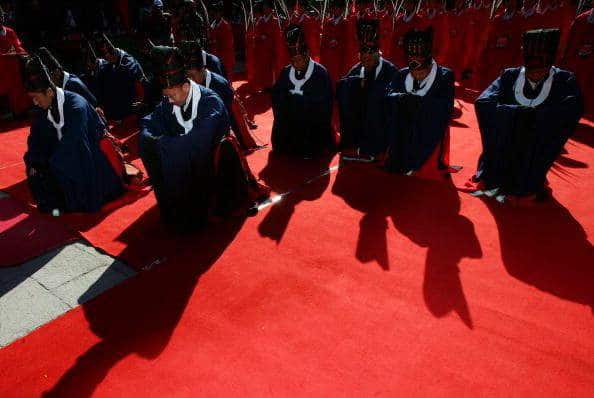
In one sense, the Confucian ethic is egalitarian, though not in Western sense where everyone has equal standing and opportunity within society. Instead, there’s equality within a social rank.
Though modern China has moved past these narrowly defined roles, the Chinese today are still used to thinking in terms of hierarchy. They tend to respect hierarchy and differences in status much more than Westerners, who tend to be more egalitarian and open towards strangers.
Americans in particular, tend to value people who treat everyone with equal respect, regardless of their relative socio-economic statuses. For instance, you often hear stories of the “down to earth” big shot CEO who chats with the janitor every morning on a first-name basis.
You won’t see this in China.
Many American managers–preferring informal, egalitarian relationships–try to get their subordinates to call them by their first names. However, if the age and status gap is wide, most will be uncomfortable doing so (you’ll have better luck with something like “Mr. Mike”).
The Chinese very much like the chain of command.
If, for example, you’re traveling in China as part of a youth program and you have a legitimate gripe about being treated unfairly, your best bet is to appeal to the highest person up the chain as possible.
Incidentally, this is sort of the opposite advice I was given in Southeast Asia about bribing the police if I got into trouble: Pay your bribe as early as possible, otherwise it gets more expensive as more higher-ups get involved.
The “Inscrutable” Chinese?
This respect for authority and hierarchy taught by Confucius helps explain why Westerners have long complained that the Chinese are “inscrutable” (or worse, devious).
In contrast to Western cultures—which encourage individual expression—Chinese culture encourages more of a “poker face”.
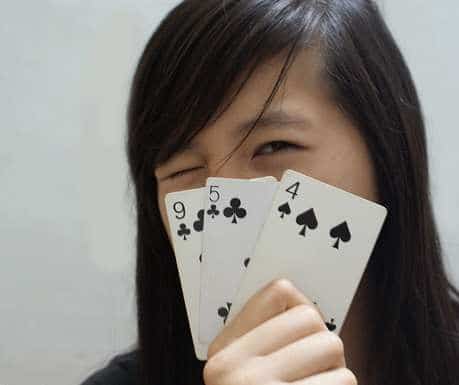
In other words, in a Confucian society, you’re supposed to act according to your rank…and not necessarily by how you feel.
In the interest of social harmony, it was important to behave with reverence and obedience according to your rank. Indeed, it was not just the polite thing to do in traditional Chinese society. Saying the wrong thing to the emperor or a powerful official could literally cost you your life.
Even in modern China today, this cultural tendency to retain a more neutral public face still endures—especially in work situations when dealing with those in authority (including customers).
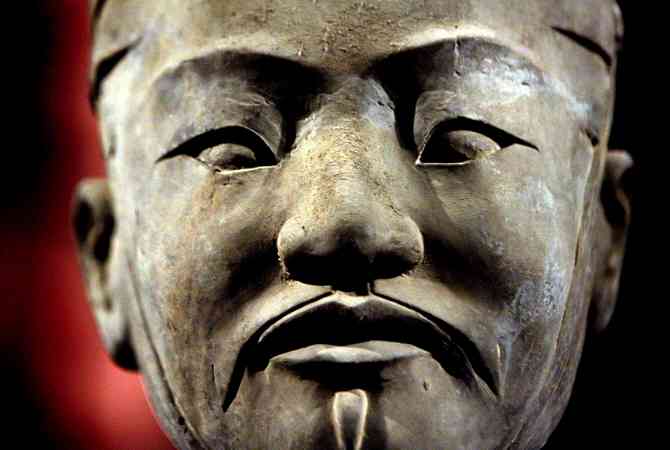
So whether dealing with your tour guide or hotel manager, don’t simply assume that they’re being evasive or uncaring just because they don’t seem to be mirroring your concerned expression when things go wrong.
On the other hand, that blank look on their face may also mean, “What the hell is this big nosed foreigner talking about? I wonder what’s for lunch in the cafeteria today?”
Chinese Collectivism & Group Orientation
One of the dimensions that sociologists use to contrast cultures is the degree of “individualism” versus “collectivism”.
It’s probably obvious, but Western cultures tend to emphasize the individual —people are defined more by what they’ve accomplished than by group membership. Individual expression is encouraged from an early age and culturally reinforced in Western cultures.
In contrast, collectivism is inherent in a Confucian society. In order for Chinese society to operate smoothly, it is necessary to subject one’s own desires to the greater good of the group. In other words, people didn’t exist independently of one another. Instead, an individual was defined by his or her relationship to the group.
For millennia, the Chinese have been culturally conditioned to suppress own personal needs and think in terms of collective responsibility—first, to their families, then community, clan, and nation at large.
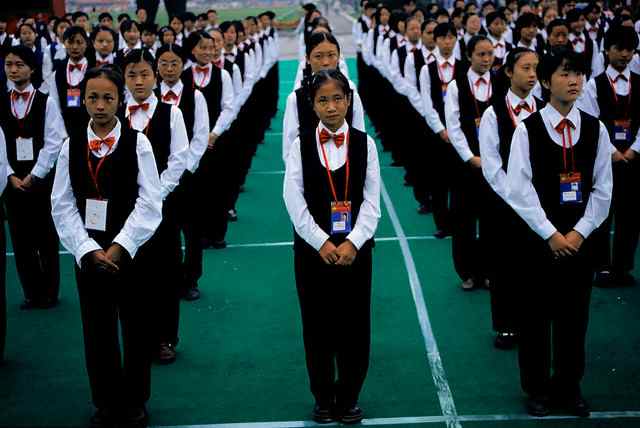
However, the modern Chinese society is rapidly changing. For better or worse, Chinese culture is being “Westernized,” along with many cultures around the world (with American popular culture as a leading culprit).
But cultural values are remarkably persistent. For instance, Asian cultures—despite Westernization—still have a strong value around modesty and humility. Overt displays of individualism and bragging are still extremely repelling to the Chinese (foreigners get more leeway since they expect it more).
Example: Giving a Compliment in China
An example of this Chinese modesty is how they take a compliment.
The Chinese are effusive compliment givers. This help explains why you find so many of them complimenting you on your “excellent” Chinese….despite the fact that you’re butchering the three phrases that you’ve managed to pick up (hello, thank you and good bye).
But when receiving a compliment, they generally don’t say “thank you.” Instead, they usually dismiss it by saying “Nali, nali” –translated literally as “Where? Where?” (as in “Where? Where is this supposed excellent Chinese to which you refer? Nowhere, that’s where!”).
Narcissistic egomaniacs will like traveling to China. Throughout my travels in China, I often see average looking Westerners swelling up with pride from compliments of how “handsome” or “beautiful” they are.
For the first time in their lives, they feel like a celebrity since random people on the street want to have their pictures taken with them (but after a while, they start to get annoyed….just like actual celebrities being hunted by paparazzi).
My point is, don’t get a big head.
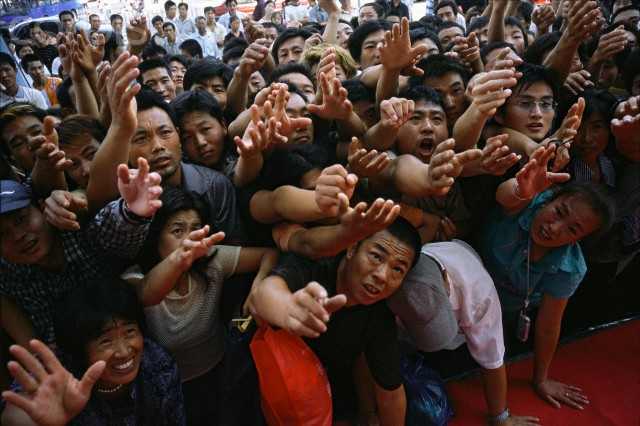
Confucius and the Chinese Family Unit
On a related subject, Chinese culture has been influenced by Confucianism through the heavy emphasis on the family –including extended family—as primary unit of social organization.
This was originally conceived as devotion and obedience one must show to parents (especially the father), but over time, it was extended to ancestors, giving rise to ancestor worship.
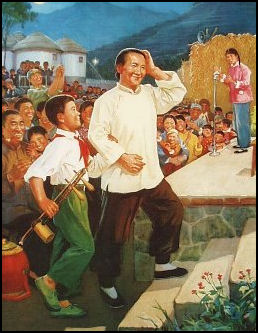
This focus on family became added motivation for “proper behavior” and conduct. An individual’s success—and shame—belongs to the whole family.
Because of this Confucian group identity and the idea of shared face in China. Chinese families—compared to Western ones—are stereo-typically overbearing (or “all up in each others’ business” as it is said).
I’m not just talking about mothers and fathers, who feel like they need to be involved in every aspect of their kids lives (typically until they get married and have kids). Grandparents and any other older relatives are not shy about giving their two cents.
There’s no subtlety and everything is fair game; they relish in criticizing everything from less-than-stellar grades to your personal appearance to lack of marital status. Their criticisms and nosy questions are supposed to be meant as showing concern…but from the Western point of view, they come off as terribly annoying (can you tell I’m speaking from personal experience?).
Another side effect of this “family first” approach is that the Chinese tend to view society in terms of insiders and outsiders. This is related to the Chinese concept of guanxi (“connections”)—where Chinese people view the world in terms of their web of family, personal and professional network….and everyone else.
Confucius and Education in China
Another big Confucian influence is China’s focus on education and scholarship. It’s no secret that Chinese (and other Asian) students put in more hours in classroom study that their Western counterparts.
Without getting into the pros and cons (rote memorization, lack of creativity, etc), I want to give a bit of insight into the roots of this classroom diligence.
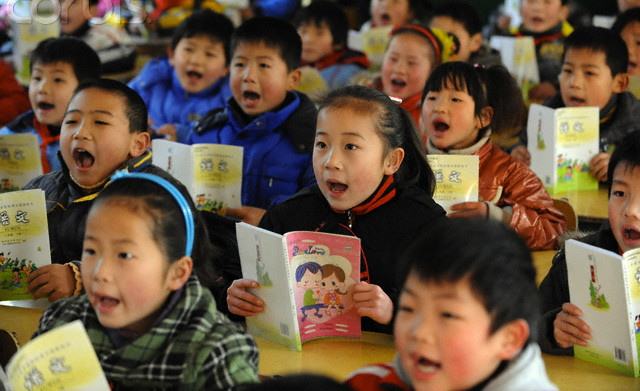
Confucius placed a heavy emphasis on scholarship. This aspect of Confucianism is still very much in practice in China, as well as other deeply influenced countries such as South Korea, Japan, Taiwan and Singapore.
Confucianism directly gave rise to the Imperial Examination system around 605 — in essence, giving rise to world’s first modern civil service. Though it continued to be refined and tweaked by future dynasties, the exam system was significant in that it was the only method by which a person (specifically, males) could move up in the world.
Confucius wanted to replace hereditary rule by the aristocracy with one based on scholarship and learning (a meritocracy). The series of exams were notoriously grueling—with a heavy emphasis on memorization of Confucian writing and classic works of literature.
But if you studied hard enough and passed, you could earn yourself a spot as a government official, bringing your family considerable wealth and face.
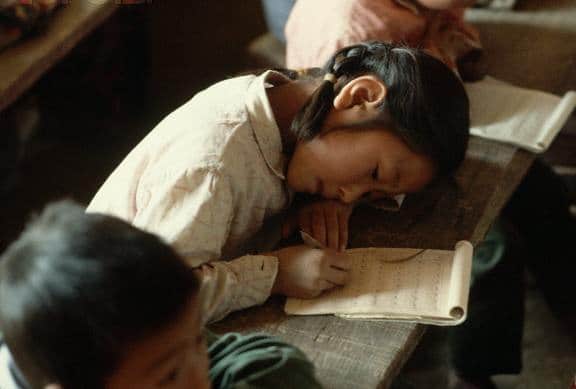
But like everything in China, you could work around the system with the right relationships. Throughout China’s history—as today—the rich and powerful could find ways to get in through the back door.
For instance, today, it’s commonly accepted that connected parents can get their kids into the most prestigious universities regardless of their grades (I suppose it’s true to some extent in the US as well).
With limited number of spots at the top universities—and over a billion people—you can imagine how insane the competition is.
I would NOT want to be a student in China.
Confucius Throughout Chinese History
Believe it or not, Confucius didn’t always enjoy this celebrity status throughout Chinese history.
He was too ahead of his time and was only mourned by a small group of his followers at his funeral. He was even mocked by his contemporary Lao Zi (and future Daoists), who took a more egalitarian and less artificially-imposed view of societal relations.
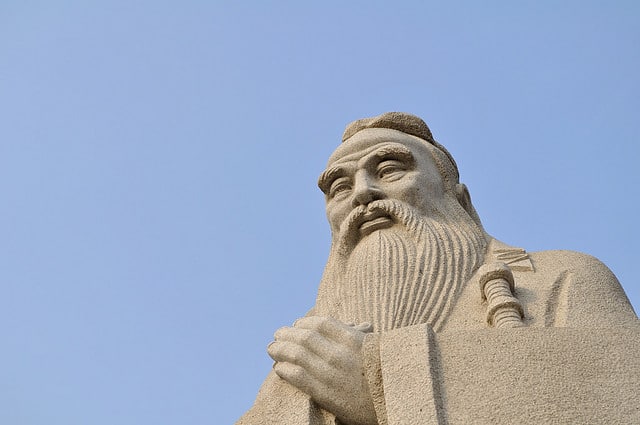
Around 100BC, the Han Dynasty declared Confucianism to be China’s official state philosophy. During the Tang Dynasty, however, it lost its official sanction. Over the last two millennia, Confucianism has remained the dominant orthodoxy in Chinese society.
Fast forward to the early 1900s. As the China and the Imperial System was going into a death spiral, Confucianism once again fell out of favor.
Way out of favor.
As Western powers (as well as Japan, a formerly Confucian country that was quicker in adapting to Western ways) were busy taking China’s lunch money, the leading intellectuals blamed an attachment to Confucian values for China’s inability to defend against foreign powers.
They argued that China’s “backwardness” in the modern world was due to Confucianism’s focus on the rear view mirror (and preached blindly obeying authority and tradition).
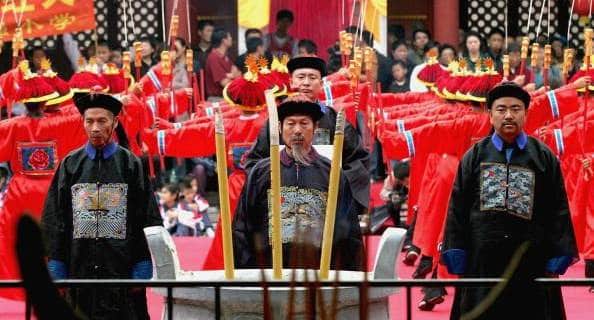
Similarly, Mao Zedong vilified him as a symbol of the old China that was holding the country back. He even launched a mass smear campaign that presented Confucius as a man whose hide-bound, anti-egalitarian ideas had done great harm to many generations of Chinese men, and even more damage to Chinese women.
The 1973-4 movement—known as the “Campaign against Lin Biao and Confucius”—claimed that his teachings kept China trapped in a feudal state for millennia.
Confucius’ Impact on Modern China
Today, Confucius is back in favor.
His emphasis on harmonious societal relations is a good fit with the modern CCP leadership desire for stability and social harmony.
There’s also been something of a resurgent interest in Confucian teachings in Chinese society— perhaps as a way to counter Western criticism of China’s political system and also as a source of pride in China’s ancient culture and the brilliance of its philosophers.
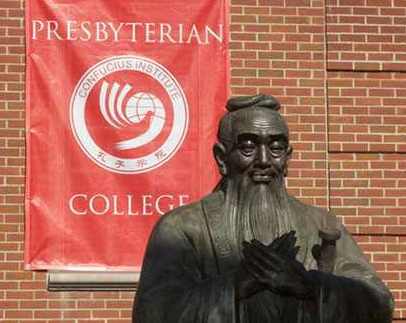
In 2006, then-President Hu Jintao called on government officials to return to Confucian moral ethics as a way to counter corruption and growing inequality.
He also approved funding for over 100 “Confucius Institutes” to be established around the world to offer classes and resources about Chinese language and culture.
Interesting Note: In January 2010, China’s domestic film industry released a movie about Confucius, starring Chow Yun-Fat. Promoting the subtext of respect for hierarchy, the film bombed.
Some blamed it on bad timing since it went head-to-head with 3D Avatar, which ended up smashing box office records in China. Other just said that it sucked (One comment from a Chinese poster simply read, “Confucius was an ass-kisser”).




